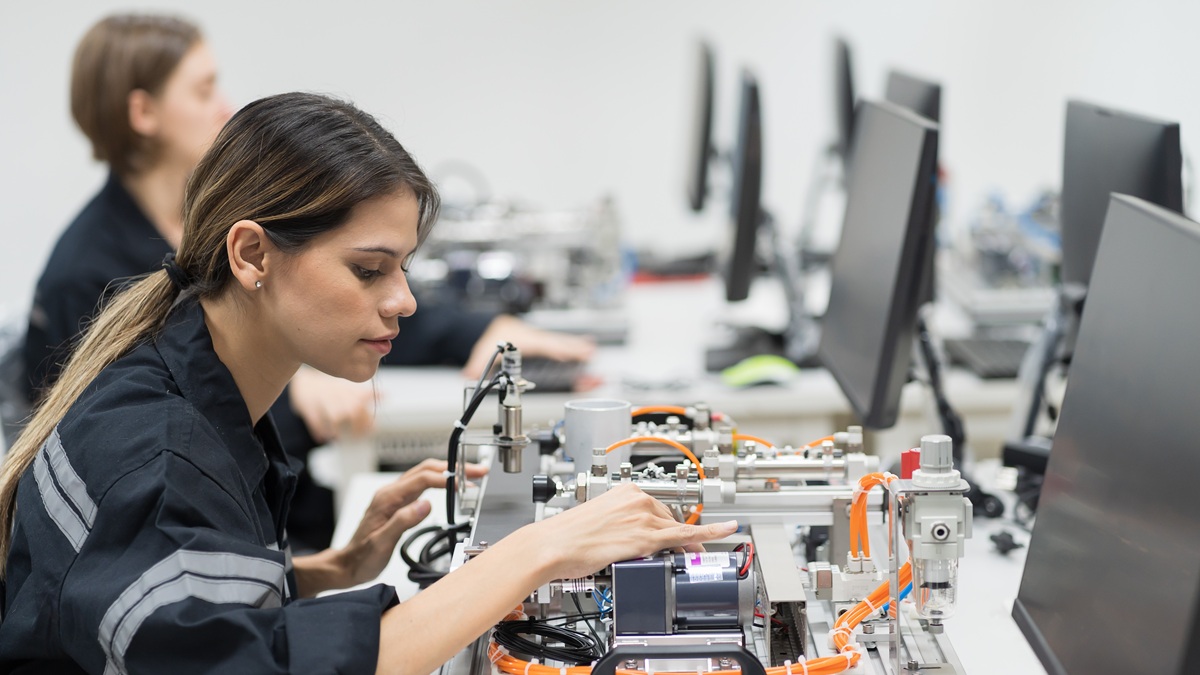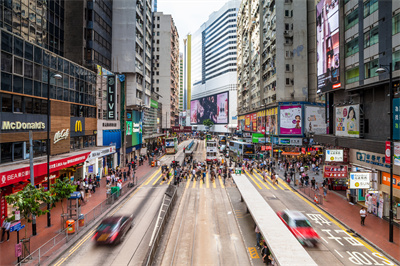This photograph shows Boston Dynamics’ SPOT robot dog on the opening day of the MWC (Mobile World … [+]
Search for articles on how AI is used in the construction industry and, if you’re like me, you’ll start getting frustrated. There are countless thought pieces from thought leaders about all the ways that AI can and will change the industry, but very few that tell actual stories of actual technologies that are actually being used by actual construction companies.
The good news: this is starting to change. AI apps for construction companies are hitting the market and maturing. These are actual technologies from actual companies that are actually available right now.
Home Remodeling.
An excellent piece by Nancy Keates in the Wall Street Journal highlights a few home remodeling applications like Renovate AI, Reimage AI, Digs, Skipp and other tools that enable individuals to reimagine a new kitchen, bathroom or bedroom and share with their designer, architect and builder. For the contractor, this saves time and helps clarify projects.
“Many of the AI apps are aimed at improving the speed and communication for homeowners working with an architect or designer,” Keates writes. “Some homeowners say the tools are already offering a newfound leg up in managing their projects with the pros.”
Robots on the construction site.
Geekwire’s Kurt Schlosser tells the story of a pilot program in Seattle where builder Skansa is using robots from Nextera Robotics to provide high-resolution, 360-degree photographic images so that Skanska’s development team can keep “near-constant eyes on a project site.”
Meanwhile, Boston Dynamics’ Spot The Robotic Dog’s “agility and athletic intelligence” to “get around job sites that other robots can’t” is reporting project progress, accessing hazardous areas and detecting health and safety issues.
Robots putting up drywall.
In 2022, Jeff Rubenstone of industry site Engineering News Record reported on a drywall installation robot offered by a company called Canvas that is “able to semi-autonomously finish large sections of drywall” and is “changing the way some drywall teams perform their work.”
“The robot focuses on broad spaces, high-volume sections, as well as hard to reach areas like high spaces and corners,” the company’s CEO and co-founder told Rubenstone. “The machine can handle the application of the finishing compound and the sanding of it. Workers do the taping and handle the more complex geometries.”
A custom ChatGPT construction application.
A startup called Togal.ai has launched a ChatGPT-based application that enables construction companies to upload charts, designs, documents and other files into its own large language model so that workers can chat, query and get answers to questions conversationally.
“With hundreds of pages in construction plans, ChatGPT will help Togal.AI users save time, improve accuracy and serve as a powerful tool to eliminate mundane tasks, so estimators can focus on higher-value jobs,” the company’s founder and CEO said in a press release.
Togal has another app that uses AI to help quickly search images for specific objects, symbols or tags (i.e. how many sprinkler heads are in this landscaping design plan?).
VR images created from designs.
A Bay Area-based company called Resolve is now selling virtual and augmented reality apps that use AI to walk though job sites and then “virtually perform safety inspections, emergency procedures or lock out/tag out to ensure alignment with building operations needs.”
The app also integrates with leading construction software platforms like Procore to convert Business Information Modelling (BIM) files into “fully immersive VR walkthroughs” so that teams can collaborate on project status, specs and progress.
In a case study, Resolve says it saved one construction client more than $3 million by flagging “over 1,000 potential issues during collaborative VR review sessions” that would have been “missed with traditional review processes.”
Converting videos to projects.
OpenSpace.ai enables workers to walk around job sites while automatically capturing videos and then converting those videos directly into BIM designs.
The company is targeting construction company owners, general contractors and tradespeople to provide an effective way to monitor job progress and keep projects updated using AI-leveraged video tools. According to one case study, a member of a field team “simply straps a 360-degree camera to their hard hat and walks the site once or twice a week, and imagery is automatically mapped to project plans and stored in the cloud, which makes it simple to locate images from different points in time.”
Drones converting images to data.
There are a number of companies that use AI to power drones. One example is Skycatch, whose drones offer a “suite of Deep Learning-based analytic tools for automatically cleaning and extracting value from data” with one of its uses focusing “on geological features such as toes, crests, safety berms and stockpiles.” Drones are no longer just cameras in the sky. Companies like Skycatch are converting photos and videos into data and then helping to project job progress and automatically identify safety and maintenance issues
The hype of AI in the construction industry is receding and the reality is taking hold. Numerous startups are building applications, hardware and robots that will historically change the way projects are done. Right now there’s s stream of new AI technologies coming to the market. Within the next few years, there will be a flood. My advice to business owners in this industry is to start swimming.
link







More Stories
Businesses face difficulty amid Surrey-Langley SkyTrain construction
Construction Industry Outlook 2026 [Free PDF Download]
DUTCO Construction To Complete Seven Tides’ Golf Views Seven City